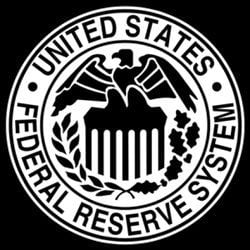The Federal Reserve is planning on making it more difficult for Wall Street banks to place large bets in the commodities markets, according to the Federal Reserve governor, Daniel K. Tarullo.
Commodities refers to raw materials like gold, silver, copper, oil, and primary agricultural products such as wheat, corn, coffee, and livestock.
Tarullo wasted no breath on Friday when he unveiled the Fed’s plan on addressing this practice before the Senate subcommittee, which has been investigating the involvement of big banks in the markets for commodities such as coal, aluminum and gas.
The senate committees have expressed concern about big banks placing large bets in the commodities markets for gas, aluminium, coal, copper, etc.
Tarullo said he is going to be announcing a set of new restrictions that will make it virtually impossible for banks to influence the price of commodities in the markets or disobey investment rules.
In addition, he added that the Fed and other regulators need to improve their oversight on banking activities.
“In general the compliance procedures, and expectations within firms for abiding by laws, are not adequate in many cases.”
The Federal Reserve governor stated all these ideas during the second day of hearings held by the Senate Permanent Subcommittee on Investigations.
Earlier this week the subcommittee released a 400-page report, highlighting cases in which banks had made huge investments in the commodities markets allowing them to influence the prices of materials.
“This is reminiscent of the days of the robber barons,” Senator John McCain, the top Republican on the subcommittee, said Friday morning.
The subcommittee revealed that in some cases regulators did not know the extent of the commodities holdings of the banks. In addition, regulators found that the banks didn’t have adequate insurance and capital to protect themselves against potential legal problems stemming from a natural disaster.
The Fed was already studying both issues, according to Tarullo, adding that he was particularly worried about the potential for a disaster to result in investors and depositors losing confidence in a big bank and requiring a bailout.
“That issue of the potential exposure is really quite central to what we are doing,” he said. “That has occasioned the most analysis.”
Senator Levin, a Michigan Democrat commented that banks are not following the provision of the Gramm-Leach-Bliley Act of 1999, stating:
“The separation between banking and commerce has served markets and our economy quite well for decades. And the erosion of that barrier is clearly doing harm today.”
Tarullo said concern that while the separation has “been a sound principle and there is no reason to digress from it; I began to wonder whether there is a gap in regulation more generally. Whether there are some things that at present no US government regulatory agency has jurisdiction over.”

